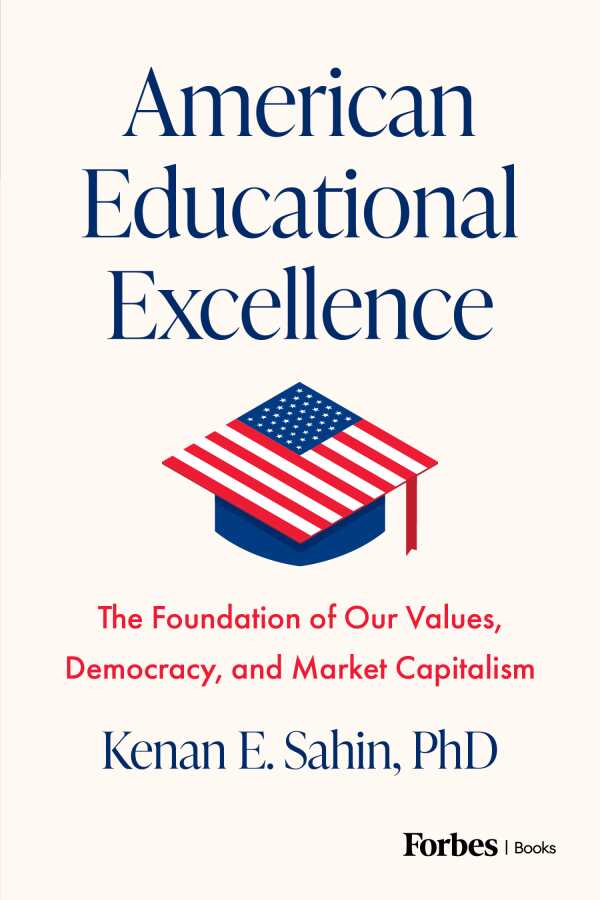American Educational Excellence
The Foundation of Our Values, Democracy, and Market Capitalism
A ranging and spirited educational manifesto, American Educational Excellence explores what makes the system in the US great.
Academic and entrepreneur Kenan E. Sahin’s broad education guide American Educational Excellence, which is “partly an experiment in AI,” extols American values and democracy as tools for a successful educational system.
American educational excellence is tied to the country’s culture and intrinsic values of family, independence, and innovative mindset, the book asserts, setting it apart on the global scene. Drawing on Sahin’s personal experience in academia and entrepreneurship, the text takes a high-level view of primary, secondary, and postsecondary education in the US to argue for its superiority. It also makes a case for continued support of K-12 and college education.
The text, sans references, contends that American values of family, entrepreneurial initiative, and an innate commitment to volunteerism and community set the US apart in educational excellence. Indeed, it is the drive toward innovation and distinct American cultural mindset that create a unique K-12 and university school system, it claims. For instance, individual character development, critical thinking and leadership skills, and adaptability in social settings are nurtured in American classrooms, it says, not measured in test scores.
The book also argues that the key drivers of the education system are democratic ideals and a market-based capitalist society, which are said to demand innovation and competitive drive in workforces and populations. Drawing connections between an educated populace and economic competitiveness, the book references historical examples, as with George Washington’s entrepreneurial spirit, the voluntary creation of the Mount Vernon Ladies’ Association, and lithium-ion battery technology stemming from the US National Laboratories.
Much of the text is underpinned by the notion that upholding American values and cultural norms results in exceptional educational structures; indeed, the book devotes the initial third of its narrative to the topic. Subsequent chapters address a diverse array of subjects, including historical highlights of education drivers, centralized and decentralized governance, and educators as a collective of “unsung heroes.” However, these topics are handled in cursory fashion, with depth sacrificed in favor of breadth, resulting in a diluted and unsurprising message.
The prose is clear but repetitive. Examples and personal anecdotes supplement the text, as with stories about Sahin’s experiences as an exchange student in a California high school and his attendance at MIT, but the book’s statistical evidence is too rushed through, and there are not often citations to uphold it. Some social science topics are also covered, including inequality in the allocation of endowment dollars, though the text is inelaborate in its criticisms and offers little in the way of advice to address the shortcomings it names. Indeed, while it lists “pressing challenges” including rising education costs, student debt, and disparities in public school funding, the solutions it proposes are broad and without depth, as with its general advice for “local control, philanthropic support and innovative funding approaches.”
Equal parts foundational history lesson and argument for its pedagogical principles, the academic study American Educational Excellence encourages continued support of the US education system.
Reviewed by
Katy Keffer
Disclosure: This article is not an endorsement, but a review. The publisher of this book provided free copies of the book and paid a small fee to have their book reviewed by a professional reviewer. Foreword Reviews and Clarion Reviews make no guarantee that the publisher will receive a positive review. Foreword Magazine, Inc. is disclosing this in accordance with the Federal Trade Commission’s 16 CFR, Part 255.

